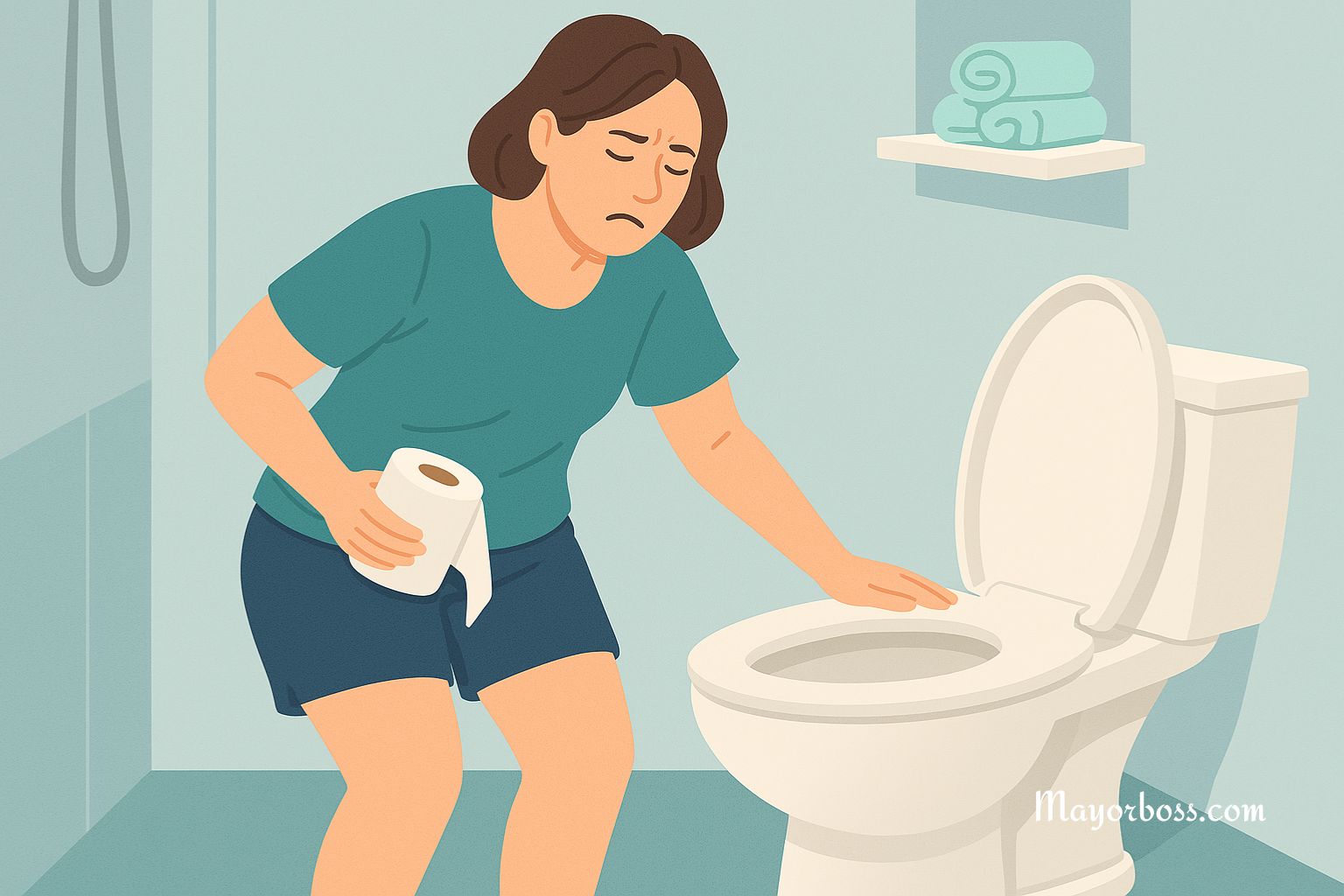Diarrhea Symptoms You Shouldn’t Ignore
Diarrhea is a common condition. Almost everyone has experienced it at some point. In many cases, it’s mild and goes away on its own. But sometimes, diarrhea can be an indication of something more serious. Knowing the symptoms to watch for can help you decide when to seek medical care and prevent further complications.

What Is Diarrhea?
Diarrhea is defined as having loose, watery stools more than three times in one day. It may last just a day or two (acute diarrhea) or continue for weeks (chronic diarrhea). While short-term diarrhea is usually linked to infections or food-related issues, chronic cases may signal a deeper health problem.
Common Symptoms of Diarrhea
Diarrhea rarely comes alone. It often brings several other symptoms with it.
1. Frequent Loose Stools
This is the most obvious sign. If you’re going to the bathroom more often than usual and your stools are soft, mushy, or watery, that’s diarrhea. The body moves food too quickly through the intestines, so it doesn’t absorb enough water.
2. Urgent Need to Use the Bathroom
Many people with diarrhea feel a sudden, strong urge to go to the bathroom. This can happen several times a day and can interfere with normal activities. If you find it hard to hold it in, that’s another clue.
3. Abdominal Cramping or Pain
Cramping or sharp stomach pains often come before or during a bowel movement. The pain may be mild or severe, and it usually improves after passing stool.
4. Bloating and Gas
Extra fluid in the intestines can cause bloating and gas. Your belly may feel full, tight, or swollen. This symptom often goes hand in hand with cramping.
5. Nausea or Vomiting
Some people with diarrhea also feel nauseated or vomit. This is especially common if an infection is the cause. Food poisoning or a stomach virus may cause both vomiting and diarrhea.
6. Fever
A mild fever may appear with diarrhea, especially if the cause is viral or bacterial. A higher fever may point to a more serious infection. If your temperature rises above 101°F (38.3°C), it’s wise to speak with a doctor.
7. Dehydration
Diarrhea can lead to dehydration. This happens when your body loses too much fluid and electrolytes. Watch for signs such as:
- Dry mouth or tongue
- Thirst
- Dark yellow urine or little to no urine
- Fatigue or weakness
- Dizziness, especially when standing
- Headache
Children and older adults are especially at risk. Severe dehydration may require emergency treatment.
Symptoms That May Signal a Serious Problem
While most cases of diarrhea clear up in a few days, some symptoms mean you should seek medical help right away. These include:
- Blood or pus in your stool
- Black or tar-like stools
- Diarrhea lasting more than two days (or more than 24 hours in children)
- Signs of dehydration
- High fever
- Severe belly pain
- Unexplained weight loss
- Diarrhea after recent travel, especially to other countries
These could suggest infections, inflammatory bowel disease, or other underlying conditions.
Causes of Diarrhea
There are many possible causes of diarrhea. Some of the most common include:
- Viral infections (like norovirus or rotavirus)
- Bacterial infections (such as E. coli or Salmonella)
- Food intolerance (such as lactose intolerance)
- Medications (especially antibiotics)
- Digestive disorders (like irritable bowel syndrome or Crohn’s disease)
- Contaminated food or water
Finding the cause helps guide treatment. In some cases, tests like stool samples or blood work may be needed.
When to See a Doctor
If diarrhea is severe, long-lasting, or accompanied by the warning signs listed earlier, you should call a healthcare provider. Children, especially babies and toddlers, should see a doctor sooner. Dehydration can develop quickly in young children and cause serious health issues.
Older adults and people with chronic conditions like diabetes or heart disease should also seek care sooner, as they may have a harder time recovering from fluid loss.
How to Take Care of Yourself
Mild diarrhea often goes away with simple care at home. These steps can help:
- Drink fluids: Sip water, clear broth, or oral rehydration solutions. Avoid sugary drinks or caffeine.
- Eat plain foods: Stick to bland foods like bananas, rice, toast, and applesauce. Avoid fatty, spicy, or dairy-heavy meals.
- Rest: Give your body time to recover.
- Over-the-counter medications like loperamide (Imodium) may help, but don’t use them if your diarrhea is caused by a bacterial infection unless your doctor says it’s safe.
If symptoms continue or worsen, don’t delay medical care.
